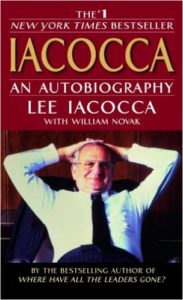Even
Ever wonder how all those industry experts and business leaders find time to produce thought leadership content?
When they’re so committed to running successful businesses, how do they manage to compose provocative and engaging articles that build their personal brand and show their companies as pioneers in their respective industries?
The answer is they probably didn’t — a ghostwriter did it for them.
So, as a content marketing manager tasked with getting your own CEO’s out there, you ask yourself: should I hire a ghostwriter to help us build out that part of our content strategy?
You already know how challenging it is to get simple blog posts up. And you know that your company’s leadership and other individual experts in your organization hold a lot of valuable insights in their heads, but you’ll never get them to sit down and write a “big idea” piece.
Maybe writing isn’t your CEO’s forte. In any case, the process would take precious time away from other work to build and grow the business. Fortunately, working with a ghostwriter provides a solution.
What is a ghostwriter?
First, a couple words of clarification about what we’re talking about.
The term ghostwriting lately has been used a little more widely than is really helpful. We need a clearer ghostwriting definition.
Oftentimes, marketing directors say they are looking for ghostwriting when what they really mean is writing services for uncredited or unbylined material. These are typically articles for a company blog that are “in the company voice” and presenting the company’s point of view on a subject. The actual writer’s byline is left off, but so is anyone else’s.
That isn’t what we would define as ghostwriting. That is really a form of copywriting in the content marketing mode. If you hired someone to write a brochure for your company, you wouldn’t expect them to put their signature on it. And, in leaving the signature off, you wouldn’t call it ghostwriting. It’s just unbylined copy.
Ghostwriting in the strictest sense is when the writer is trying to capture an individual’s ideas and voice and to craft it so it can appear under that individual’s signature or byline. It’s that definition of ghostwriting that we’ll be talking about here.
To stand out in the content marketing clutter, you must present the CEO or other leadership as an expert who has something original to say to help readers succeed in business. You’re selling your company’s expertise, which is more powerful than selling a product.
Marketing experts — including the ghostwriter, hopefully — can ensure that, however your story and expertise are expressed, it is ultimately in alignment with your overall marketing strategy. Authentic shouldn’t mean rogue. Even very personal opinion pieces need to fit in with your content plan.
Hiring a ghostwriter
When choosing a ghostwriter, you may prefer to find one who has experience in writing about your particular industry. But don’t get too hung up on that. There’s also an advantage to their lack of familiarity on the subject.
In fact, we often say, tongue-in-cheek of course, that content marketers in general should be good at “asking the obnoxious question.” That’s even more so with ghostwriting. Experienced interviewers know how to spar with their subjects a little to help bring out original ideas. They play devil’s advocate and think about the subject from the reader’s point of view.
Requesting writing samples from the ghostwriter can be tricky. Due to confidentially concerns, the ghostwriter may be unable to show you their ghostwritten clips.
But that shouldn’t deter you since most ghostwriters have written other articles under their own byline, which you can read to get an idea of their writing style and the quality of their prose.
Also, they can show you examples of ghostwritten copy in that broader sense discussed above — when they are capturing the “organizational voice” for unbylined pages. Does it look like they are able to capture what the brand’s voice is elsewhere?
We recommend you especially look at their original reporting — magazine-style feature articles that involve interviewing experts and weaving in their quotes to create a compelling read.
Do the quotes seem kind of blah and obvious, or are they provocative and make you look again? The quality of the quotes is due in part to how effective an interviewer the author is.
Whose is it anyway?
One overlooked element of ghostwriting is the question of who gets the credit after it is published under your byline. Even if the article isn’t under their byline, the ghostwriter prefers to be able to claim credit for it in their clip file or to mention it on their resume.
If your main interest is attracting qualified leads, then this won’t be an issue for you. However, if your CEO or other internal experts aim to be presented as a writer, then you may prefer a white label arrangement where the ghostwriter refrains from ever mentioning their involvement.
You should go with whatever you are comfortable with, but our advice here is to not to worry about this too much. Ghostwriting doesn’t have the stigma it did in the past. You probably aren’t developing the article to make your CEO famous as a writer. You’re developing it to get their ideas out there and to attract the attention of partners and customers.
After all, probably the most famous business biography of all time has the ghostwriter’s name loud and proud on the cover.
If Lee Iacocca didn’t need to keep his ghostwriter under wraps, why do you?
Related reading: Publish Your Expertise: Content Marketing for Professional Services Firms
Alternatives to crediting ghostwriters
The easiest thing is to have the material under your byline where it’s published and to not worry about credit otherwise. Let the writer show it when pitching prospective clients.
The next simplest thing is to keep the relationship entirely white label. You own it, and they never breathe a word of it. If that’s what you need, then you would put that in your Master Services Agreement or the Scope of Work, and most experienced writers or content agencies know the drill.
But if you’re willing to go a little further beyond that white label arrangement to let the writer get some record of their work, here are a few ideas.
Experienced ghostwriters won’t be phased by any of this. The main thing is to discuss this issue at the onset rather than to insist on something more restrictive after the process has started.
Assure your execs: This really is you
The “author” may wonder if the ghostwritten piece will be “authentic.” In other words, will it truly capture their passion for and knowledge of the topic?
Yes, it will. A great ghostwriter elicits expertise and enthusiasm during the interview, then hones it through research to create a thoughtful, well-organized thought leadership piece that others will want to read. A ghostwriter helps to “pull out” your CEO’s big ideas and point of view.
Once the first draft is ready, the piece goes through a careful editing process that continues the collaboration. The author can refine it to further reflect their own voice.
Publishing great thought leadership pieces has proven to be a powerful content marketing tool. Such pieces position your company leaders as experts and organically bring leads to your business. A packed schedule shouldn’t prevent your leadership from taking advantage of this option; if they don’t have the time to craft a stellar article personally, hire a ghostwriter.
Maria Wood
Guest Author


